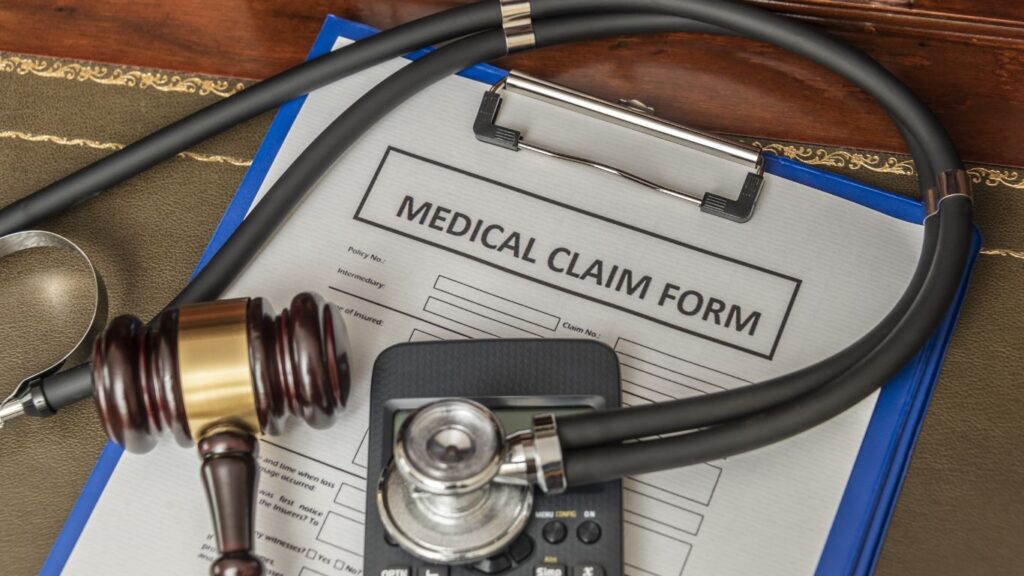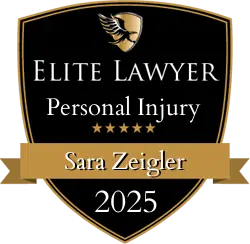What is Medical Malpractice?
Medical malpractice is a form of professional negligence by a healthcare provider. When a caregiver fails to meet the standard of care that a similarly trained professional would provide under the same circumstances, and this failure results in harm to the patient, it may give rise to a medical malpractice claim. There are four key elements to a medical malpractice claim:
- A caregiver must owe a professional duty to a patient.
- The caregiver must fail to fulfill their obligations, providing services that fall below the standard of care.
- The patient must suffer damage as a direct result of the caregiver’s failure.
- The patient must experience harm that the caregiver can compensate them for.
How Medical Malpractice Differs from Other Personal Injury Claims
It’s crucial to understand that medical malpractice lawsuits differ from general personal injury claims. While both types of cases involve proving a breach of duty of care that results in harm, medical malpractice cases are held to a professional standard, meaning the caregiver is considered negligent if a similarly trained professional wouldn’t have acted the same way.
Personal injury cases, on the other hand, use a “reasonable person” standard, where negligence is determined based on what an average reasonable person would have done in the same situation.

Types of Medical Malpractice Cases
Medical malpractice can take many forms, from misdiagnosis to surgical errors, and includes scenarios such as birth injuries and anesthesia errors. A few common types include:
Birth Injuries
During the birthing process, medical professionals are expected to monitor both the mother and the baby closely. Any negligence can lead to significant harm, including cerebral palsy, Erb’s palsy, hypoxic-ischemic encephalopathy (HIE), and more. If your child has suffered a birth injury due to medical negligence, you have the right to seek compensation.
Anesthesia Errors
Anesthesia is a critical component of many surgical procedures. However, if an anesthesiologist administers the wrong dosage or fails to monitor the patient’s vital signs correctly during the surgery, it can result in severe damage or even death. Anesthesia errors account for about 3% of all medical malpractice lawsuits in the United States.
Wrongful Death
In the most tragic circumstances, medical negligence can result in the death of a patient. In these cases, the surviving family members have the right under West Virginia law to file a wrongful death claim. This is a complex process that should be navigated with the help of an experienced wrongful malpractice attorney to get you the best outcome for your case.
Proving a Medical Malpractice Case
Proving a medical malpractice case is a multifaceted and intricate process, which typically hinges on detailed technical and medical questions. Success in such a claim involves several critical steps.
Firstly, it requires the collection and thorough examination of all relevant medical records. These documents provide the factual basis for the claim, highlighting where the standard of care may have been breached.
Next, the involvement of expert witnesses is crucial. These experts, usually experienced healthcare professionals, review the medical records and offer their testimony to establish whether the standard of care was met. Their insights are pivotal in linking the healthcare provider’s actions or inactions to the harm suffered by the patient.
Additionally, they help in explaining complex medical procedures and outcomes to a legal audience, making the technical aspects of the case understandable to those without a medical background. This process demands a deep understanding of both medical practices and legal standards, making medical malpractice cases uniquely challenging.
Role of Expert Witnesses in a Medical Malpractice Case
Medical malpractice cases often hinge on complex medical information and practices. As such, expert witnesses are usually involved to provide detailed explanations and give their opinions on whether the standard of care was breached.
These experts, who are required to be medical professionals themselves, can analyze medical records, identify medical errors, and help build a strong case for victims of medical malpractice.
Importance of Medical Records
In a medical malpractice case, your medical records serve as crucial evidence. They contain details about your diagnosis, treatment, and any procedures or medications that were administered. These documents can often point to instances where the standard of care was not met, making them invaluable in proving medical negligence.

Medical Devices and Malpractice
Medical devices play a significant role in modern healthcare. However, if these devices are faulty or used improperly, they can cause severe harm. Instances of medical device malpractice can include situations where a device is defective, used improperly, or even left inside a patient after surgery.
Benefits of Hiring a Medical Malpractice Lawyer in West Virginia
When you’re dealing with the aftermath of potential medical malpractice, hiring a medical malpractice lawyer in West Virginia can provide several advantages:
- Knowledge and Experience: Medical malpractice law is complex and can involve intricate medical details. Lawyers who specialize in this area have the knowledge and experience necessary to navigate these complexities. They understand the medical terminology, procedures, and standards of care involved in these cases.
- Investigation and Evidence Collection: A lawyer can help gather and review all necessary medical records and other evidence. They can also work with medical experts who can testify about the standard of care and whether it was breached.
- negotiating with insurance companies: Medical malpractice lawyers are experienced in negotiating with insurance companies, which can be a daunting task for individuals. They can fight for fair compensation on your behalf.
- Trial Experience: If your case goes to trial, having a lawyer is crucial. They can develop a strong case strategy, present your case effectively, and advocate for you in court.
- Understanding of Damages: Medical malpractice lawyers have a comprehensive understanding of the types of damages you may be entitled to. These can include not only medical expenses, but also loss of income, pain and suffering, and more.
- Peace of Mind: Finally, knowing that a professional is handling your case can provide peace of mind during a difficult time. You can focus on your recovery while your lawyer focuses on seeking the justice and compensation you deserve.
Frequently Asked Questions
Here are a few of the most asked questions about medical malpractice we’ve been asked. Still have a question? Please feel free to contact us. We’re happy to help.
Can I Sue a Hospital for Medical Malpractice?
In certain cases, a hospital can be held liable for medical malpractice. For instance, if the hospital’s negligence in hiring or supervising its staff led to your injury, the hospital could be held responsible. Additionally, hospitals can sometimes be held responsible for the actions of their employees. However, many doctors are independent contractors, not employees, which could complicate the matter. It’s best to consult with a medical malpractice attorney in West Virginia to understand who can be held liable in your specific case.

Need Legal Help? Trust Our Law Firm
If you or a loved one has been a victim of medical malpractice, it’s crucial to seek legal advice as soon as possible. The experienced medical malpractice lawyers at Kaufman & McPherson are here to help West Virginians like you.
We understand the complexities of these cases and are ready to guide you through each step of the process. Don’t let medical negligence go unaddressed. Reach out to us today for a free consultation.







